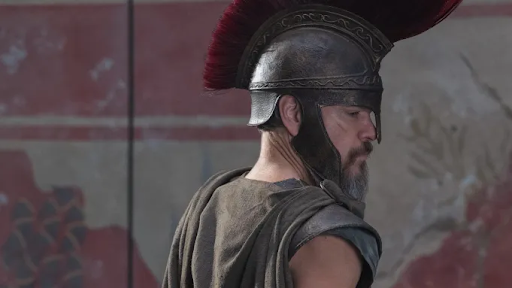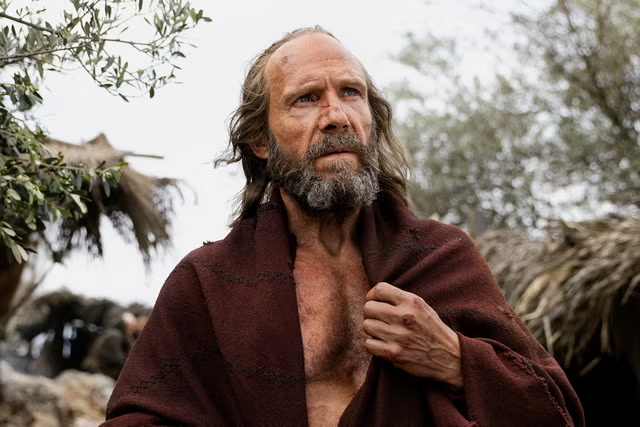Christopher Nolan’s “The Odyssey” and Hollywood’s lack of Mediterranean representation

Greek culture, especially its mythology, is undoubtedly one of the most famously adapted traditions in narrative storytelling and popular media. From film and television to modern literature, Greek mythology has garnered colossal amounts of recognition and cultural resonance amongst various audiences. But are these adaptations correct and truthful to the original myth? And, more importantly, how much does Hollywood, as a powerful cultural institution in its own right, influence these Greek cultural elements?
As a Greek, I love seeing artistic interpretations of my culture, even external perspectives, because I’m very interested in how it continues to inspire artists in the modern day. Therefore, I was excited to hear the rumors that auteur Christopher Nolan was planning to adapt Homer’s “The Odyssey,” one of the oldest surviving works of Greek literature and one of the backbones of learning about Greek culture. However, the announcement of the film’s cast, all established Hollywood actors — Matt Damon, Tom Holland and Anne Hathaway — made me wonder whether the film is using A-list actors as a way to attract audiences and command public interest, all while putting the integrity and accuracy of the narrative at risk.
While casting a lineup of wildly successful actors may lend a production more credibility and draw audiences to theaters for the familiar faces, it also allows a certain lack of regard to the integrity of “The Odyssey,” an epic and foundational narrative cornerstone of Western literature with deep Mediterranean roots.
I was also shocked to learn that there were no Greek actors cast in any leading roles, on top of this Greek epic being put into the hands of a non-Greek director. For a film that is adapted from an ancient Greek text, one would expect Greek actors (or at least, actors of Greek descent) to star in the movie. Even if that was out of the question, considering the lack of Greek stars in Hollywood, it would at the very least be possible to cast Mediterranean actors. This would not only allow for the movie to appear more ethnographically accurate, it would also help avoid criticism of the lack of Mediterranean representation in Hollywood. By not casting actors that represent the diverse Mediterranean countries through which Odysseus passed by before returning to Greece (Tunisia, Italy — specifically Sicily — and Spain), such countries lose the chance of being represented in a piece of art rooted in the Mediterranean region.
In my opinion as a Greek individual, by having Mediterranean actors (and maybe a Mediterranean film director as well) I would see my culture being represented in public media without being distorted by elements that would characterize the movie as “American” instead of what it truly is: a Mediterranean story. In fact, without any Mediterranean cultural elements, this story stops being a pinnacle of Mediterranean art, but instead it becomes an Americanized version of Mediterranean art and culture.
Many fans also had concerns about potential historical inaccuracies. Several users on X took issue with the film’s promotional poster in which Odysseus’ costume, worn by Matt Damon on the poster, is not correct to the historical period the epic poem took place in, and does not follow the original text.
“The Odyssey is set during the age of heroes (aka the Mycenaean period) some time around 1200 BC, and so the helmets would have been of the boar tusk style, not the Corinthian style. The Corinthian helmet didn’t come into use until the Archaic period, around 700 BC,” X user @WeeboJones said in a post.
If accurate, Damon should actually be wearing a kino leather helmet decorated with boar tusks, instead of a traditional Spartan helmet with a red crest on its top.

Nolan’s 2026 film will not be the first time “The Odyssey” has been adapted for the screen — not even the first time this decade. In December 2024, Uberto Pasolini’s “The Return” came out. Unlike Christopher Nolan’s film, which is rumoured to be exploring Odysseus’ journey and arrival in Ithaca, “The Return” focuses on Odysseus’ arrival in Ithaca after having already been away from home for twenty years, centering the film around the last books of the poem.
Though in Italian director Pasolini’s film there are also no Greek actors leading this film, Pasolini hired two Greek film producers, Konstantinos Kontovrakis and Giorgos Karnavas, to assist in pre-production. Taking this step, along with a contribution from the Ionian Islands Film Office and the Central Archaeological Council of Greece, which allowed the movie to be filmed in Greek and Byzantine castles, ensured that Greeks had a say in the portrayal of the original piece on the big screen.
Although I can’t fully judge Nolan’s “The Odyssey” without having seen it, it is clear that there were many oversights that could easily allow for improper Greek and Mediterranean representation, something that Hollywood is already lacking severely. If these concerns are not addressed, the film could end up misleading its audience, alienating people of Mediterranean descent and undermining the preservation of Greek culture.
As more information on the production comes to light, I think it is important to recognize the shortcomings the film has already displayed and to remain diligent and critical of a project that, until now, has been a careless and inaccurate portrayal of Greek culture.
